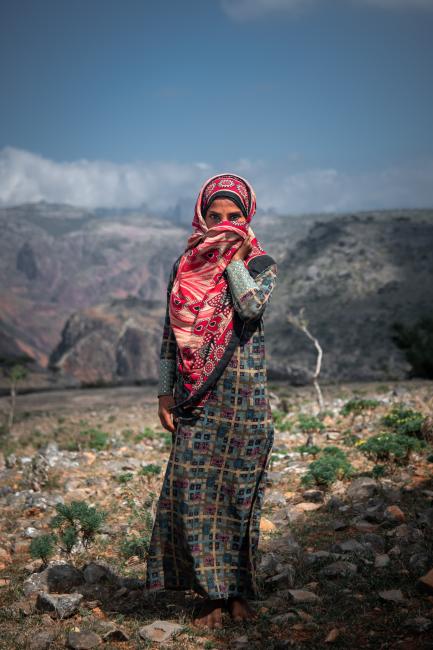Renewable energy, violent conflict, and gender equality: Exploring a triple nexus on a case study of Yemen
The decarbonization of economy is happening at a time of increased conflicts, but the relationship between renewable energy and conflict is poorly understood. This four year project looks at energy-conflict nexus from a gendered perspective since both conflict and renewables disproportionally affect women.

Feminist foreign policies carry potential to address the energy-conflict nexus, and the project provides analysis that can inform cross-sectoral development programming. In this project, the researchers design a crisis as opening and closure framework to understand how a conflict enables the introduction of renewable energy, how renewable energy affects women in conflict, and how donors influence energy transitions in conflict. The researchers combine theories of conflict fragmentation and cohesion, gender empowerment, and energy justice to identify socio-technical and political conditions of a conflict state, material and symbolic means of achieving gender-inclusive energy, and justice aspects of donor supported projects.
Yemen is used as a case study, a conflict state with the most precarious status of women in the world, where solar infrastructure has gone from negligible to reaching 50 percent of rural and 70 percent of urban households since 2015. Using a mixed methods approach, the multidisciplinary research team combines stakeholder involvement, survey data, field observations, interviews with local residents, and expert interviews with donors and actors implementing renewable energy projects at two sites in Yemen (Aden and Sana’a).
Publications
- Policy brief: Clausen, M.-L. 2025. “The slow violence of waste in Yemen: Addressing long-term consequences of solar transition”, DIIS Policy Brief. Danish Institute for International Studies, Denmark, 28 October 2025. https://www.diis.dk/en/research/the-slow-violence-of-waste-in-yemen
- Media participation: Clausen, M.-L., in Nielsen, S. C. 2025. “Strømmen forsvandt i krig og kaos. I Yemen fandt de løsningen på taget”, Verdens Bedste Nyheder, 30 March 2025. https://verdensbedstenyheder.dk/nyheder/stroemmen-forsvandt-i-krig-og-kaos-i-yemen-fandt-de-loesningen-paa-taget/
- Policy brief: Clausen, M.-L., Zhukova, E., Ramasar, V. 2022. “Renewable energy transitions impact power structures in local communities”, DIIS Policy Brief. Danish Institute for International Studies, Denmark, 28 March 2022. https://www.diis.dk/en/research/how-renewable-energy-transitions-impact-power-structures-in-local-communities
Research team
The multidisciplinary research team (political science, security studies, human geography, sustainability studies, gender studies) gathers expertise on energy transitions, state interventions, development assistance, feminist foreign policy, gendered vulnerability, and crisis in the Global South, and builds on previous collaboration and Yemen expertise of team members.
The Principal Investigator (PI), Ekatherina Zhukova is co-PI on Riksbankens Jubileumsfond’s project on Sweden’s feminist foreign policy. She has led Swedish Institute’s project on gender and disaster and served as a board member of the Society for the Critical Studies of Crisis at Lund University. She has over 20 of experience on energy transitions and gendered vulnerability, mainly in the areas affected by the Chernobyl nuclear disaster. She brings expertise on feminist foreign policy, gendered vulnerability, and crisis to the project.
Vasna Ramasar is co-PI on the Swedish Energy Agency’s (Energimyndigheten) project on energy just transitions. She co-leads Lund University’s Pufendorf Institute for Advanced Studies initiative on energy justice. She has over 20 years of expertise in resource governance and sustainability in development projects, mainly in African countries. She brings sustainability, energy transitions, and energy justice expertise to the project.
Maria-Louise Clausen is PI on the Danish Research Council’s (DFF) project on linkages between international interventions. She leads a Danish Foreign Ministry project budget on UN peace and security. She has over 20 years of experience in the Middle East and is a leading expert on Yemen. She brings expertise on state capacity and intervention in fragile states to the project.
"Renewable energy, violent conflict, and gender equality: Exploring a triple nexus on a case study of Yemen" will be carried out during 2023 to 2027 and is funded by Formas, the Swedish government research council for sustainable development.

